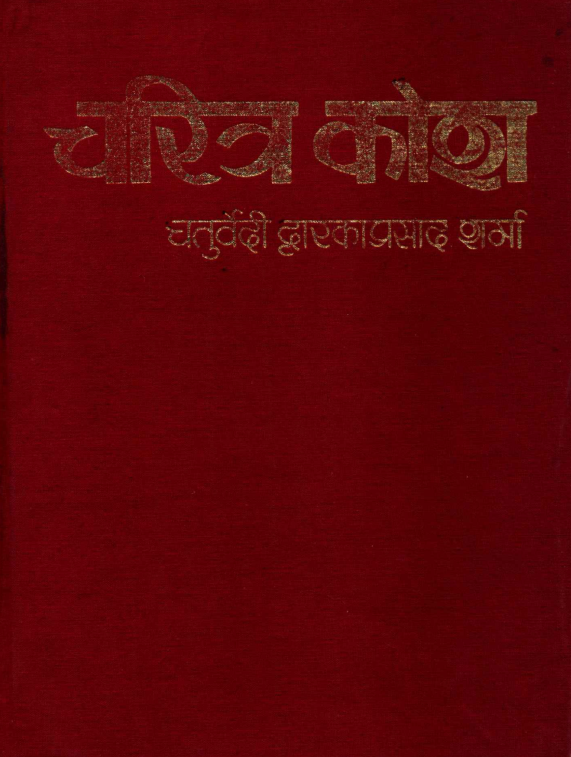Compiler: Various
Spiritual and Stories Kosh : आध्यात्मिक और कथा कोष
“Spiritual and Stories Kosh” could refer to a lexicon or collection of terms, concepts, narratives, and teachings related to spirituality and mythology within a particular cultural or religious tradition. In the context of Indian literature, such a kosh would encompass the rich tapestry of stories, deities, philosophical concepts, and moral teachings found in texts like the Puranas, Vedas, Upanishads, epics (Ramayana and Mahabharata), and other spiritual literature.
Purpose and Importance
Educational Resource:
- A spiritual and stories kosh serves as an educational resource for scholars, students, and practitioners. It provides definitions, explanations, and contexts for various terms and stories, making it easier to understand complex spiritual concepts and narratives.
Preservation of Culture:
- Such a kosh helps preserve the cultural and religious heritage of a tradition. By compiling and explaining stories and spiritual teachings, it ensures that the wisdom and values of the past are accessible to future generations.
Spiritual Guidance:
- For practitioners, a spiritual and stories kosh offers guidance on moral and ethical living, spiritual practices, and the pursuit of enlightenment. It draws from a wealth of stories and teachings to provide inspiration and direction.
Content and Structure
A spiritual and stories kosh would typically include:
Mythological Stories:
- Narratives about gods, goddesses, heroes, and sages. These stories often contain moral lessons, illustrate the power of faith and devotion, and explain natural and cosmic phenomena.
Philosophical Concepts:
- Explanations of key philosophical ideas such as dharma (righteous duty), karma (action and its consequences), moksha (liberation), and the nature of the self (Atman) and the ultimate reality (Brahman).
Spiritual Practices:
- Descriptions of various spiritual practices, rituals, and disciplines. This might include yoga, meditation, puja (worship), and other devotional activities.
Moral Teachings:
- Insights into ethical living and the virtues that should be cultivated, such as truthfulness, compassion, non-violence, and self-discipline.
Historical and Cultural Context:
- Background information on the cultural and historical context in which these stories and teachings developed, providing a deeper understanding of their significance.
Examples from Indian Literature
Puranas:
- Collections like the Bhagavata Purana, Vishnu Purana, and Shiva Purana contain numerous stories about the deeds of gods and goddesses, cosmology, and genealogies of kings and sages. They blend mythology with spiritual teachings.
Vedas and Upanishads:
- The Vedas include hymns, rituals, and philosophical discussions, while the Upanishads delve into profound metaphysical questions about the nature of reality and the self.
Epics:
- The Ramayana and the Mahabharata are epic narratives that combine storytelling with moral and philosophical teachings. They explore themes of duty, righteousness, devotion, and the complexity of human nature.
Bhagavad Gita:
- A key philosophical and spiritual text within the Mahabharata, where Lord Krishna imparts spiritual wisdom and guidance to the warrior Arjuna, addressing concepts like duty, devotion, and the nature of reality.
Influence and Legacy
Cultural Impact:
- These stories and teachings have profoundly influenced Indian culture, art, music, and dance. They continue to be a source of inspiration and guidance for millions of people.
Global Reach:
- The spiritual and moral lessons found in these texts have universal appeal and have been translated into many languages. They resonate with people across different cultures and spiritual traditions.
Spiritual Inspiration:
- For practitioners, these stories and teachings provide a framework for spiritual growth and ethical living. They offer practical advice for leading a life of purpose, harmony, and inner peace.
Conclusion
A spiritual and stories kosh serves as a vital repository of the rich spiritual heritage and storytelling tradition of a culture. In the context of Indian literature, it encompasses the vast array of mythological narratives, philosophical concepts, and spiritual practices found in ancient texts. By preserving and elucidating these elements, a kosh ensures that the wisdom of the past continues to inspire and guide future generations, fostering a deeper understanding of spiritual principles and cultural values.
Hindi Books on Spiritual and Stories Kosh
Below are some of the most important adhyatmik and katha kosh:
Tulsi Shabd Kosh by Acharya Bacchu Lal Awasthi
Contains words used by Goswami Tulsidas in Ramcharitmanas and other works.
Manas Kosh – Shiv Shankar Shrivastava
Contains words used by Goswami Tulsidas in Ramcharitmanas and other works.
Braj Bhasha Soor Kosh (in 10 Volumes) – Deen Dayal Gupt
Contains words used by poet Soordas in his works
Bharatiya Itihas Kosh by Sacchidanand Bhattacharya (UPHS)
Contains a dictionary of historical places, people and events.
Bharatiya Mithak Kosh – Dr Usha Puri Vidya Vachaspati
Contains terms related to various mythological characters.
Charitra Kosh – Chaturvedi Dwarka Prasad Sharma Ed by Narayana Chaturvedi
Contains words related to notable characters from history and Purana.
Leshya Kosh (Cyclopaedia of Lesya) – Shiv Shankar Shrivastava
Leshya is a technical term in Jaina Philosophy. Based on accumulation of past deeds and sanskara, the soul gets colored in particular lesya.
Mahabharat Kosh By Ramkumar Rai – Chowkhamba
Contains words and stories related to characters from Mahabharata
Mahabharatiya Sanskriti Kosh By Ramji Upadhyay, 1982
Words from Mahabharata and their location (book, section, chapter, verse etc) in the epic.
Also check out our page Mahabharat Sookti Kosh
Valmiki Ramayana Kosh By Ramkumar Rai
Contains stories of characters from Valmiki Ramayana
Pauranik Kosh by Rana Prasad Sharma
Contains characters’ names from Purana and Ramayana/Mahabharata.
Katha Kosh
Contains stories from various Puranas.
Greesh Puran Katha Kosh
Contains stories from Greek Mythology.
Neeti Sukti Kosh by Ramswaroop Shastri
Sadukti Karnamritam of Sri Dhar Das – UP Sanskrit Sansthan Lucknow
Updesh Ratn Kosh
Yog Vedant Shabd Kosh
Related products
Upanishads : उपनिषद् संग्रह
Upanishad






